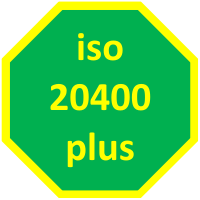*partially/fully adopted from ISO 20400 guidance published by ISO – International Standards Organisation.
What is sustainable procurement?*
Sustainable procurement is the process of making purchasing decisions that meet an organisation’s needs for goods and services in a way that benefits not only the organisation but society as a whole, while minimizing its impact on the environment. This is achieved by ensuring that the working conditions of its suppliers’ employees are decent, the products or services purchased are sustainable, where possible, and that socio -economic issues, such as inequality and poverty, are addressed.
What is ISO20400 – Sustainable Procurement?*
ISO 20400:2017 provides guidance to organisations on integrating sustainability with in procurement.
Aimed at top managers and directors of the purchasing function, it covers the political and strategic aspects of the purchasing process, namely how to align procurement with an organisation’s goals and objectives and create a culture of sustainability. The standard defines the principles of sustainable procurement, including accountability, transparency, respect for human rights and ethical behavior, and highlights key considerations such as risk management and priority setting. It also covers various stages of the procurement process, outlining the steps required to integrate social responsibility into the purchasing function.
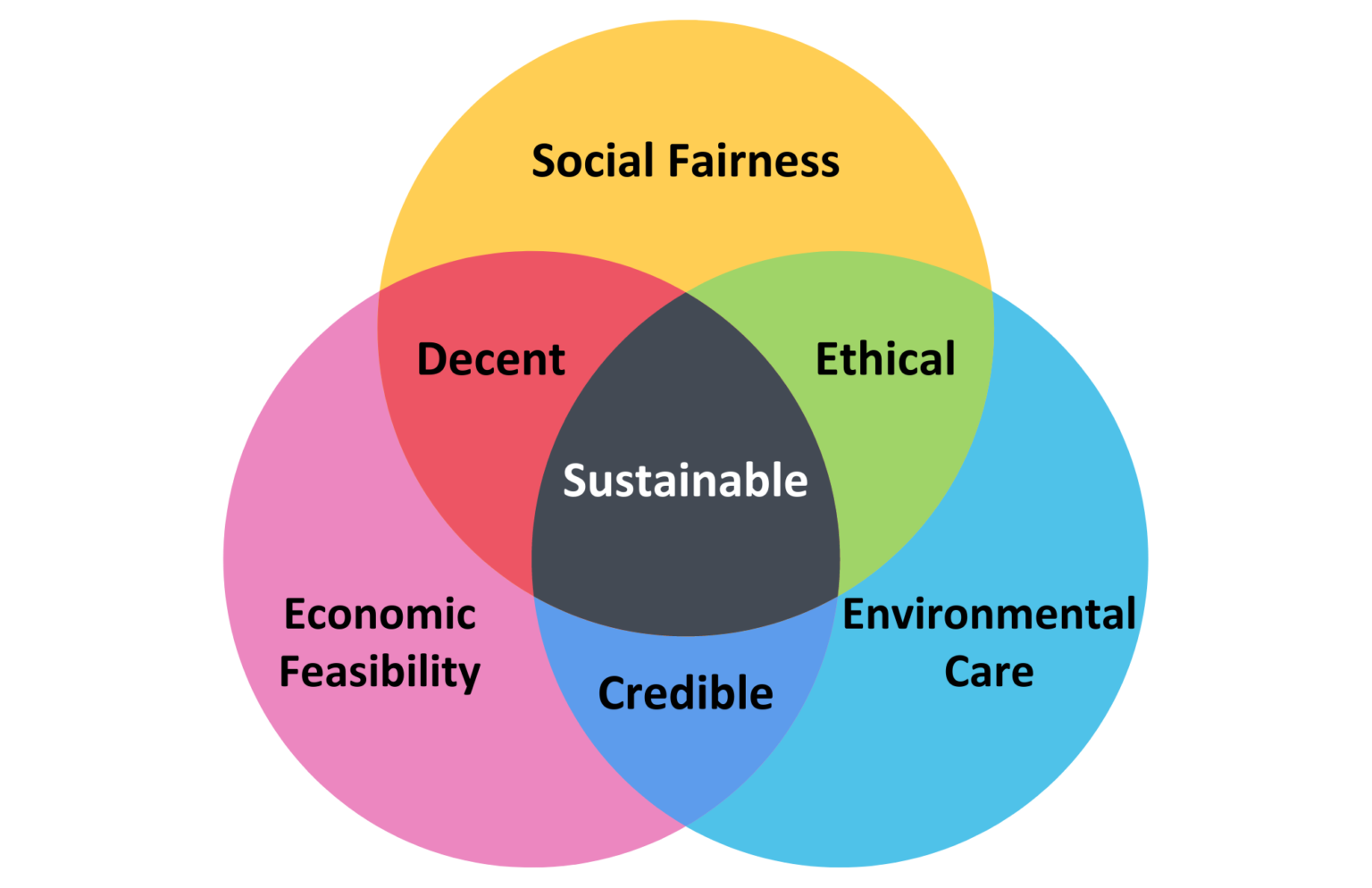
What about certification?*
ISO 20400 provides guidelines, not requirements. It is therefore not intended for certification purposes.
What problems can ISO20400 potentially solve?
It can solve lots of issues. Following are the three most important issues, which can be potentially solved:
- It can help you move towards 100% sustainability goal. What proportion of your revenue goes towards paying suppliers? For example, a typical organisation buys/pays $70, add value of $30 and sells at $100. So out of $100 revenue generated, it spent $70, so 70% of revenue. So if you make your organisation sustainable internally, then you can address 30% issues (where you add value) out of 100% issues. So to make your organisation fully sustainable, you will have to address 70% of issues which are being imported into your organisation. That means the organisation needs to extend support to procurement team to meet overall sustainability goals.
- It can help you focus on company credibility and brand image. From our extensive procurement experience, the procurement team is mostly expected to bring down cost, negotiate favorable T&C and review TCO (Total Cost of Ownership). ISO20400 may help you enhance your company credibility and brand image, which may provide you long term gains.
- It can help you focus of revenue. A smart CEO and COO should leverage coordination of marketing, technical and procurement to drive revenue growth and profit growth. Example – If you are a small café owner, then you will buy coffee beans as well furniture to the taste of your customer, and little based on cost. However, when the business grows exponentially, the procurement team’s focus is diverted from revenue growth to cost reduction. Who created this problem? This is your chance to transform your procurement function from cost leadership to revenue creator as well as enhancer.
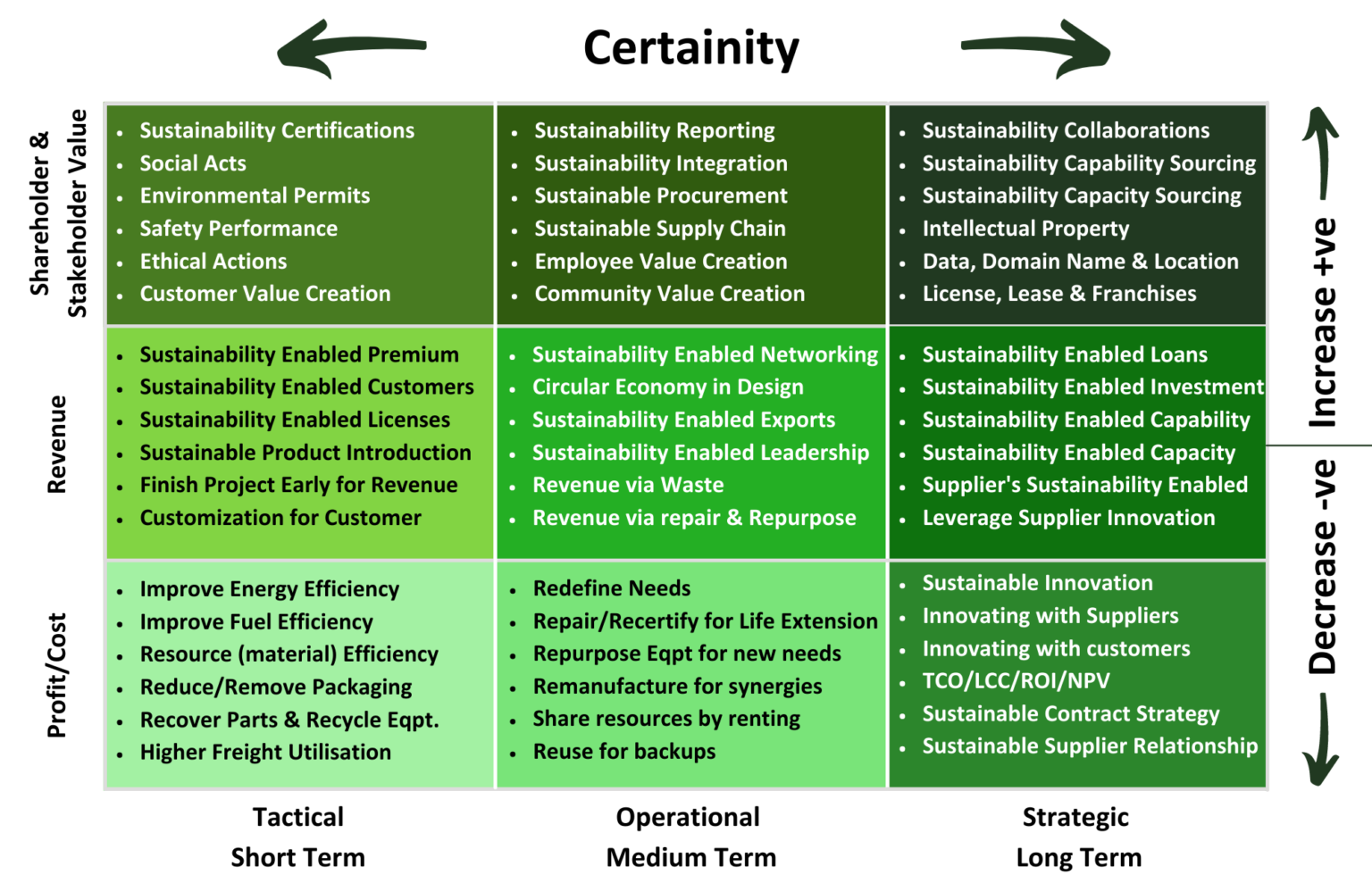
What benefits can ISO 20400 potentially bring to my organization?*
By implementing ISO 20400, your organization will contribute positively to society and the economy through making sustainable purchasing decisions and encouraging suppliers and other stakeholders to do the same. The standard will help you reduce your impact on the environment, tackle human rights issues and manage supplier relations, while harmonizing long-term global costs and improving your purchasing performance, hence giving your organisation a competitive edge. Using the standard will help improve communication between contractors and all stakeholders and promote mutually beneficial relationships. It will also harmonize the purchasing function by improving relationships with suppliers and reducing risks in the supply chain, such as disruptions due to product recall or supplier failure. What’s more, ISO 20400 is a useful tool for boosting productivity, optimizing cost and stimulating innovation in the market.
Does ISO 20400:2017 contributes to United Nations Sustainable Development Goals (UN SDGs)?*
Yes. It contributes to following goals.


Which organisations can adopt ISO 20400?*
ISO 20400 is aimed at organizations of all sizes, in both the public and private sectors, as it applies to virtually every purchasing decision from office supplies and caterers to energy providers, building materials and more.
How can I get started with ISO 20400? *
- Examine your “buying culture. How do you buy and who do you buy from? How much control do you have over your suppliers’ risks such as rupture of stock? Are your demands of your suppliers realistic? Is your organization clear of its own requirements?
- Know your supply chain. Evaluate the cost of the supply chain in your organization. What proportion of your revenue goes towards paying suppliers? Do you know their societal and environmental impact?
- Think strategically. Consider the risks and opportunities of working more closely with your main suppliers – across the whole life cycle.
- Get buy-in from top management. Ensure key decision makers and influencers are on board and aware of the benefits, opportunities and possible consequences of implementing sustainable procurement into your organization.

What are the main principles of ISO 20400?*
- Accountability: An organization should be accountable for its own impacts on society, the economy and the environment. In the context of procurement, this specifically includes accountability for impacts and for those on the organization’s supply chains, with a life cycle perspective on goods or services.
- Transparency: An organization should be transparent in those decisions and activities that impact the environment, society and the economy. In the context of procurement, this specifically includes being transparent in its procurement decisions and activities and encouraging its suppliers to be transparent. Transparency is the basis for stakeholder dialogue and collaboration.
- Ethical behavior: An organization should behave ethically and promote ethical behavior throughout its supply chains.
- Full and fair opportunity: An organization should avoid bias and prejudice in all procurement decision-making. All suppliers, including local suppliers and small and medium-sized organizations (SMOs) should have a full and fair opportunity to compete.
- Respect for stakeholder interests: An organization should respect, consider and respond to the interests of stakeholders impacted by its procurement activities.
- Respect for the rule of law and international norms of behavior: An organization should strive to be aware of any violations throughout its supply chains. It should actively encourage its suppliers to abide by these rules and assess and address compliance as situations require.
- Respect for human rights: An organization should respect internationally recognized human rights.
- Innovative solutions: An organization should seek solutions to address its sustainability objectives and encourage innovative procurement practices to promote more sustainable outcomes throughout entire supply chain.
- Focus on needs: An organization should review demand, buy only what is needed and seek more sustainable alternatives.
- Integration: An organization should ensure that sustainability is integrated into all existing procurement practices to maximize sustainable outcomes.
- Analysis of all costs: An organization should consider the cost incurred over the life cycle, value for money achieved, and the costs and benefits for society, the environment and the economy resulting from its procurement activities.
- Continual improvement: An organization should work towards continually improving its sustainability practices and outcomes, and encouraging organizations in its supply chains to do the same.
Example of Principles Evaluation

What are core subjects of ISO 20400?*
- Organizational governance: decision-making processes and structures;
- Human rights: due diligence, human rights risk situations, avoidance of complicity, resolving grievances, discrimination and vulnerable groups, civil and political rights, economic, social and cultural rights, fundamental principles and rights at work;
- Labour practices: employment and employment relationships, conditions of work and social protection, social dialogue, health and safety at work, human development and training in the workplace;
- The environment: prevention of pollution, sustainable resource use, climate change mitigation and adaptation, protection of the environment, biodiversity and restoration of natural habitats;
- Fair operating practices: anti-corruption, responsible political involvement, fair competition, promoting sustainability in the value chain, respect for property rights;
- Consumer issues: fair marketing, factual and unbiased information, fair contractual practices, protecting consumers’ health and safety, sustainable consumption, consumer service and support, and complaint and dispute resolution, consumer data protection and privacy, access to essential services, education and awareness,
- Community involvement and development: community involvement, education and culture, employment creation and skills development, technology development and access, wealth and income creation, health, social investment.
Who should be involved in ISO 20400 within my organization?
Following chart may provide some insight:
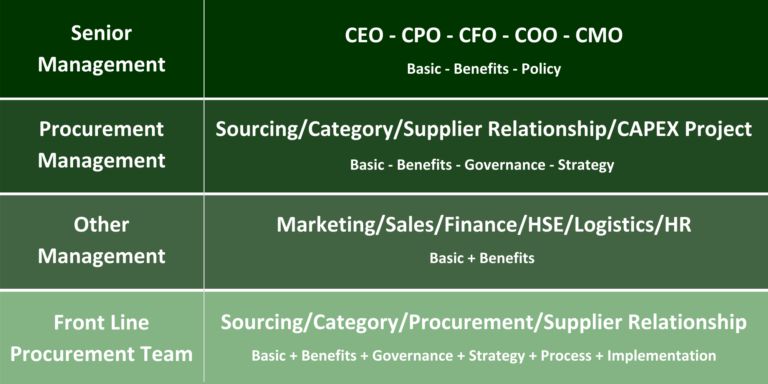
How can we manage ISO 20400 project?
Following process flow may provide some information:

What social criteria can be incorporated in ISO 20400?
Following United Nations’ and International Labour Organisations’ social criteria can be integrated; however this should be based on country, industry, organization type, organization size, organization expectations and organization requirements:
- Forced labour
- Child labour
- Non-discrimination
- Freedom of association & collective bargaining
- Industrial relations
- Employment policy
- Equality of treatment
- Security of employment
- Training & development
- Conditions of work
- Occupational safety & health
- Social protection
- Governance
- Indigenous & tribal peoples
- Particular Categories of workers like Plantations & Maritime
What environmental criteria can be incorporated in ISO 20400?
- Air
- Water
- Land & Soil
- Forests
- Oceans & Seas
- Energy (Affordable & Clean Energy)
- Biosafety
- Live stock
- Chemicals & Waste
- Recycling standards
- Climate Action (including carbon footprint & GHG emissions)
- Ecosystems & Biodiversity (Life Below Water & Life on Land)
- Resource efficiency
- Natural disasters
- Environmental policies
How can iso20400plus help my organization towards our ISO 20400 ambitions?
- ISO 20400 assessments
- ISO 20400 project definition
- ISO 20400 planning
- ISO 20400 trainings
- ISO 20400 reassessment after implementation
- Implementation consultancy through our partners
- Day to day consultancy through our partners
Why cannot iso20400plus provide consultancy directly?
We provide céleste sustainability certification (not for ISO20400), so we cannot provide consultancy. It is about conflict of interest and impartiality.
iso20400plus cannot use staff, management, or contractors to conduct certification activities if they have been involved in any consulting (including internal audits) related to the organisation’s management system certification or verification process, within two years following the end of the consultancy.
Why should you use iso20400plus for ISO20400 related services?
There are many capable organisations, who can provide complete solution for ISO 20400, however following aspects differentiates us:
- We can transform your procurement function from cost focused to revenue creator & enhancer.
- We can provide new dimensions on reputation enhancement.
- We can integrate non-ISO20400 sustainability concepts, so you do not have to manage multiple management systems.
- We can integrate ISO 20400 into your ISO 9001 system, so you do not need two management systems.
- We can provide eco-workshop, which can help you integrate and analyses Eco-labels without anyone’s support.
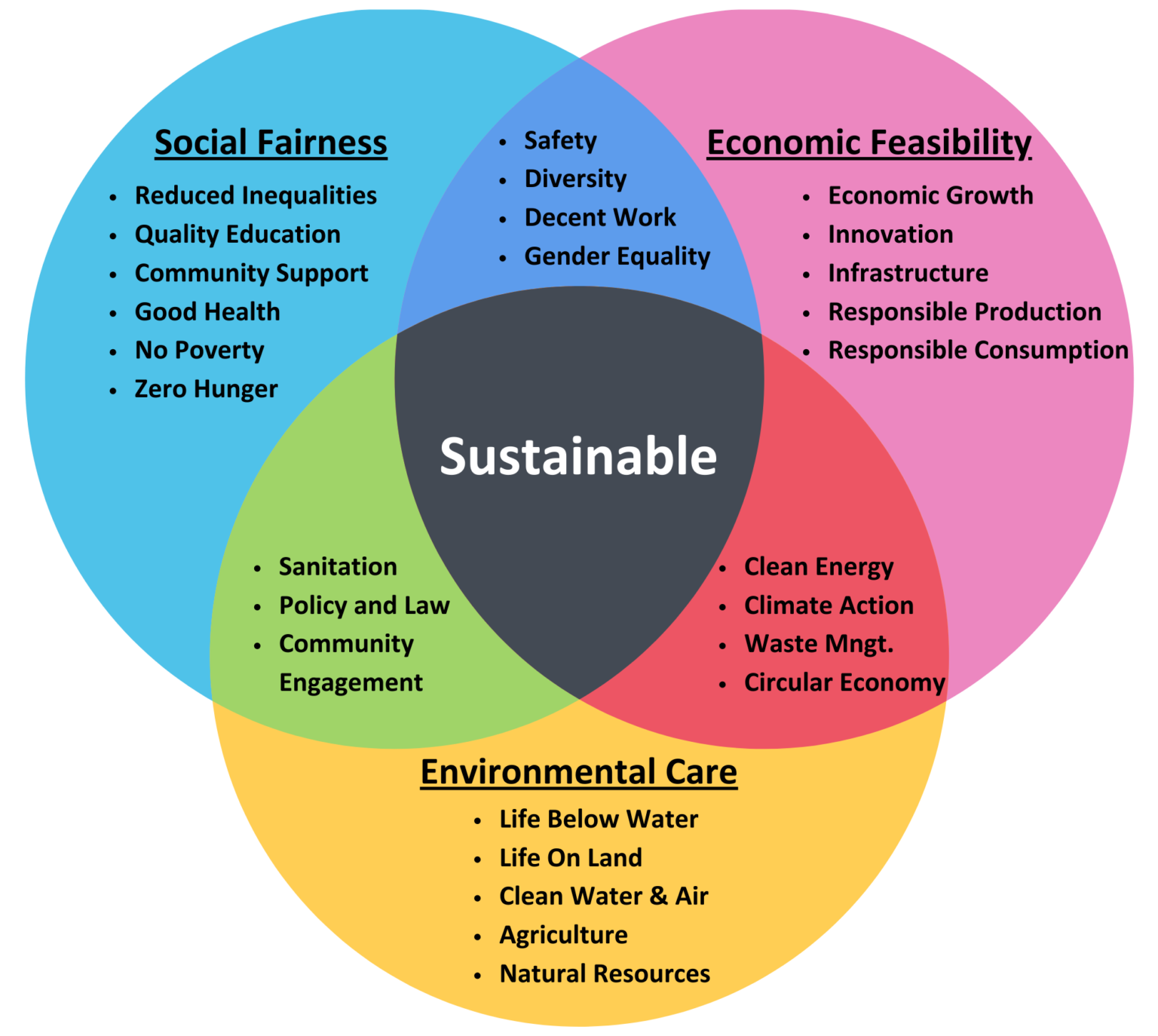
ISO 20400 - Sustainable Procurement Enquiry Form
Please do not provide any data which is to be kept secret or confidential.
